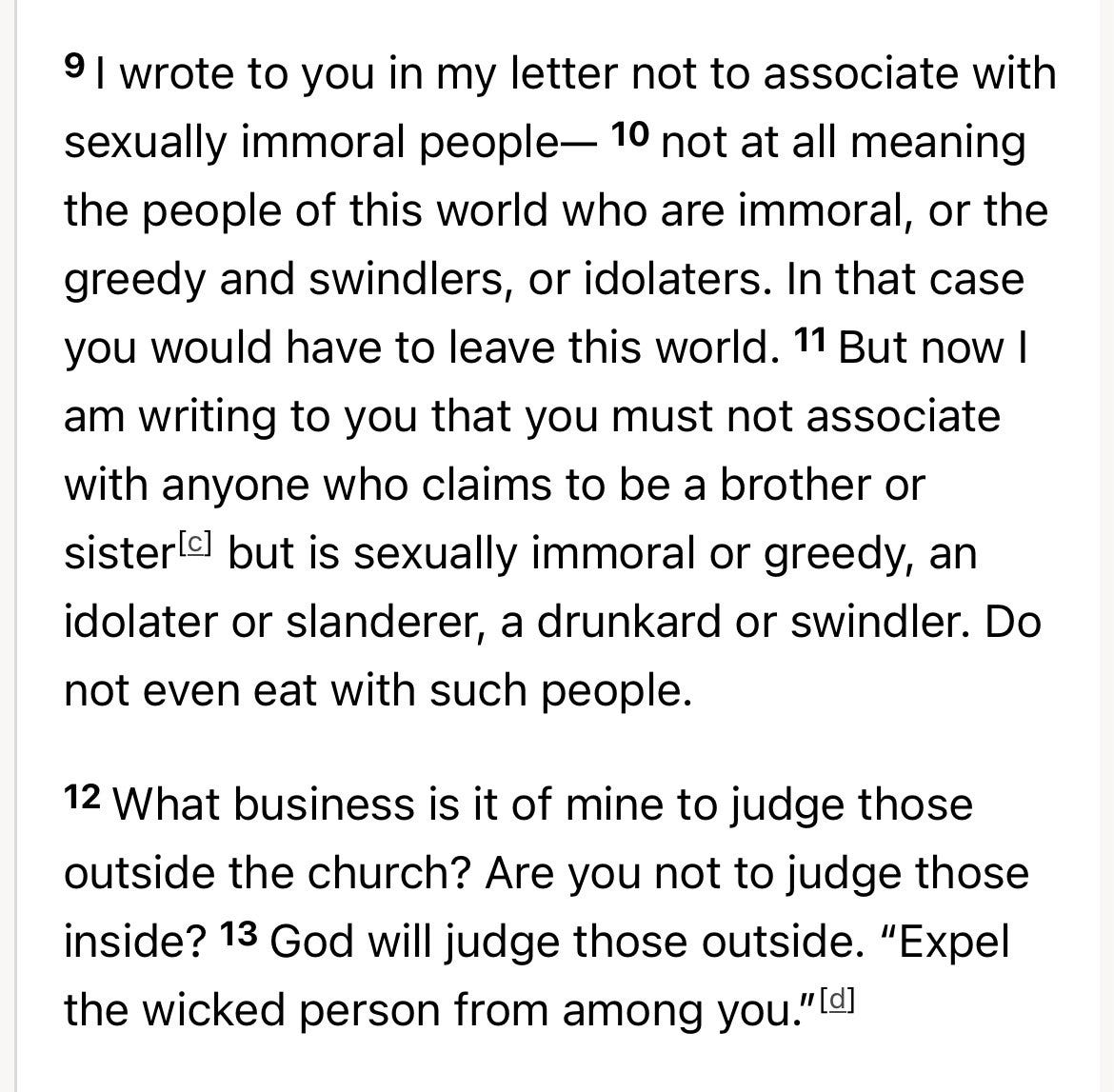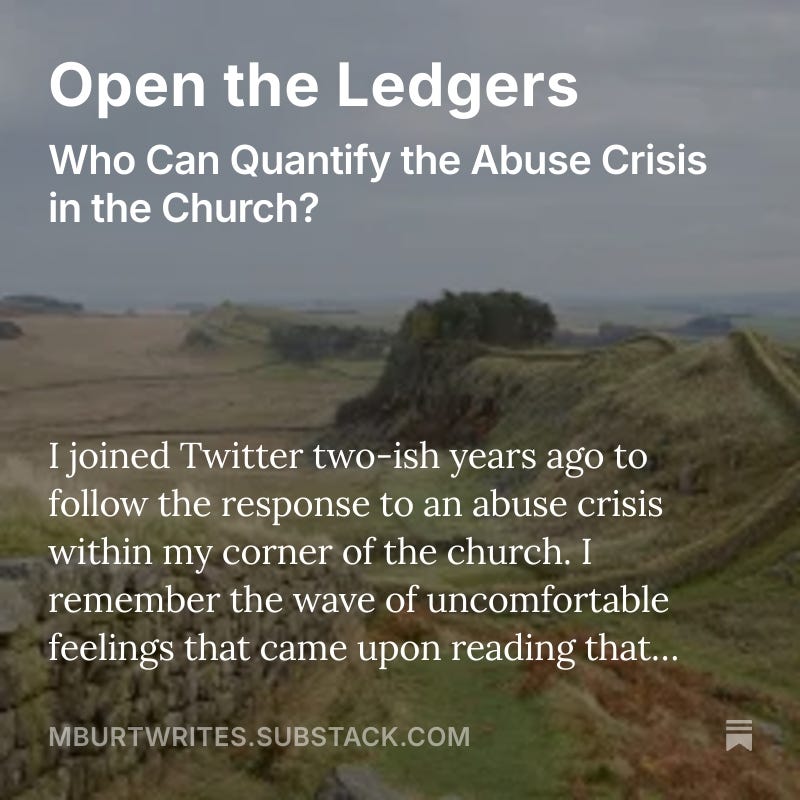We Can Try to Go "Back to the Frontier"
But moralism, religious hypocrisy, and cancel culture we will always have with us
I saw a post today where Pastor Denny Burk incidentally dehumanized two children in his ire over Chip and Joanna Gaines’ decision to cast a family with two gay dads on their new reality TV show.
Moralistic litmus tests are revealing.

I’ve not seen many Christians express concerns regarding the ways home renovation shows normalize consumption, discontentment and greed. I’ve not seen discussions about how this forms idolatrous souls that expect luxury when so many people go without food, clothing, shelter, and other necessities.
Disappointed fans seem capable of overlooking those things as well as the fact that many unmarried couples on Fixer Upper were likely cohabitating. They were able to see that it was a TV show, not a church, and that people who aren’t Christians are uninterested in participating in the piety of Christianity. We might do them the favor of believing them.
I don’t know why Christians imagine that shouting louder about their own beliefs or shaming other people will do anything except clang gongs. Maybe it’s a result of anxiety as people who were accustomed to at least lip service to Christian norms now find themselves navigating a post-Christian, neo-pagan west.
Perhaps we might look to the example and wisdom of the early church for guidance. The first Christians never had the luxury of expecting the surrounding culture to conform to their moral beliefs. As I read 1 Corinthians, it seems pretty clear that Paul never saw it as his or the early church’s task to isolate, exclude and erase people who weren’t Christians and didn’t hold to his ideas about morality.
In fact, he even took care to remind the Corinthians that Christians might come to differing conclusions about the liberties they hold, exhorting them to prioritize charity and humility amongst themselves.
How strange, then, when Christians today perceive immoral, greedy or idolatrous specks in the eyes of others and demand a kind of moral purity.
“What business is it of mine to judge those outside the church?” Paul goes on to say.
Which isn’t an aside. Christians are mad that a secular reality TV show has secular cast members, all while we have neglected to respond to people within the church who have preyed on the most vulnerable.
Paul is writing to the Corinthians, because the new converts are adrift, careening as the church so often has done between license and legalism. He is correcting the errors inside the church.
What are Christians willing to get loud about?
I will take public statements of concern and cancel culture campaigns over perceived sexual immorality outside the church seriously when those same people flip tables over predatory pastors inside it.
Maybe we can turn our attention outwards after we’ve expelled abusive leaders and corrected church family systems that enable abuse.
Instead, we have denominations eager to cover over the failure of leaders whose complicity compounded harm. Paige Patterson apparently attended the annual SBC convention with no remark, while survivors like Jen Lyell and Duane Rollins, who went so long unheard and unbelieved, are gone. My own denomination, the ACNA, awaits the results of a long overdue ecclesiastical trial to consider whether bishops are indeed responsible to safeguard against and report abuses in the parish under their care.
Wrongdoing from within the church is being laid bare, and no denomination is exempt. I will believe evangelical declarations of concern for children and families when we stop minimizing the evil that has been done inside God’s house and in His name, when we lament with the survivors and exvangelicals and all whose faith has shipwrecked over moral injury and hypocrisy.
Calling hatred “love” and cruelty “kindness” doesn’t make it so. Hatred and contempt never showed anyone the Good News of God’s love.
Whatever you think of people’s sexual choices, they are people, in this case that includes two children whose perhaps first and only taste of Christianity will be public contempt and censure.
What is the end goal of shaming these children for the way in which they were conceived, now forever preserved on the internet with Christian disdain? Did God not knit them together in their mother’s womb?
Reality TV is not the Church
“Oh!” but someone may be saying, “the outrage isn’t over the family.” It’s directed at Chip and Joanna, who are indeed Christians, for not shunning this family and so somehow falls under the category of correction inside the church. Perhaps our entertainment-obsessed Sunday morning liturgies have gotten us confused, but maybe it needs said: Reality TV isn’t the church.
Which takes us back to 1 Corinthians 5 and the words of Paul—who became all things to all people or the sake of the Gospel—and his pragmatic reminder that if we want that kind of moral purity, we will have to leave the world.
I wish we could see how scandalous Paul’s freedom is, given that he was formed by ritual purity laws and separation for the sake of holiness. His freedom should shock our pietistic sensibilities to the core.
Religious people have always gotten mad about this sort of thing, from the first time Jesus sat down to eat with people they perceived to be the really bad sinners. Tainted by association, Jesus is never punitive enough for our liking.
How easily we transform into unmerciful servants, delighting in unmerited grace and mercy when we receive it and big mad when it’s shown to others.
I guess in that sense it’s unsurprising that religious people are upset that people in the Body of Christ are associating with a family with two gay dads. But I don’t know what the end game here is supposed to be: Increasingly narrowing communities that only grant access to who you deem as the “right” kind of sinners? The conflation of every place a Christian goes or does business and every relationship they have with the church? The expectation that everyone in an increasingly not-Christian culture cares about your or my biblical interpretation?
Shouting louder about one’s own moral convictions to people who don’t share them seems, if nothing else, supremely unproductive. Of course there are pastoral conversations to be had about sexual morality in Christian relationships (the epistle to the Corinthians being a good example of this!), and vocalized clarity regarding a church’s stance on whether they are affirming or not is important for everyone involved.
But those conversations presume some previous conversation: First, is the person a Christian? Are they interested in following the life and teaching of Jesus? How do they approach the Bible and what authority do they grant different interpretations? And, if we are willing to be honest, we must consider increasingly difficult application-questions, especially when children of gay parents are involved. Maybe the complexity and tender nature of these things might encourage those of us who claim that it is the Holy Spirit who convicts of sin to trust Him to help people navigate this.
For Christians, all of this happens in the context of participation in a voluntary community—the local church. Chip and Joanna Gaines decided to not gatekeep people in the marketplace. And the Christian rage demanding they recant reveals why some people will quite understandably never set foot in a church again.
In the end, the idea that any of us achieve the kind of moral purity we demand of others is laughable. It is the log and the speck writ large, an eagerness to judge others while expecting different measures for ourselves. We lie to ourselves if we expect that we will somehow ever really get it together. Which is Good News, actually, since all any of us can ever do anyway is trust Jesus to save us.
Perhaps this is one reason why the only times Jesus got indignant with His disciples was when they hindered people from gaining access to Him, which might give us pause if we are willing to consider it.





Thank you for articulating so much that I could not. 💯
"Maybe we can turn our attention outwards after we’ve expelled abusive leaders and corrected church family systems that enable abuse."
::fist pump::